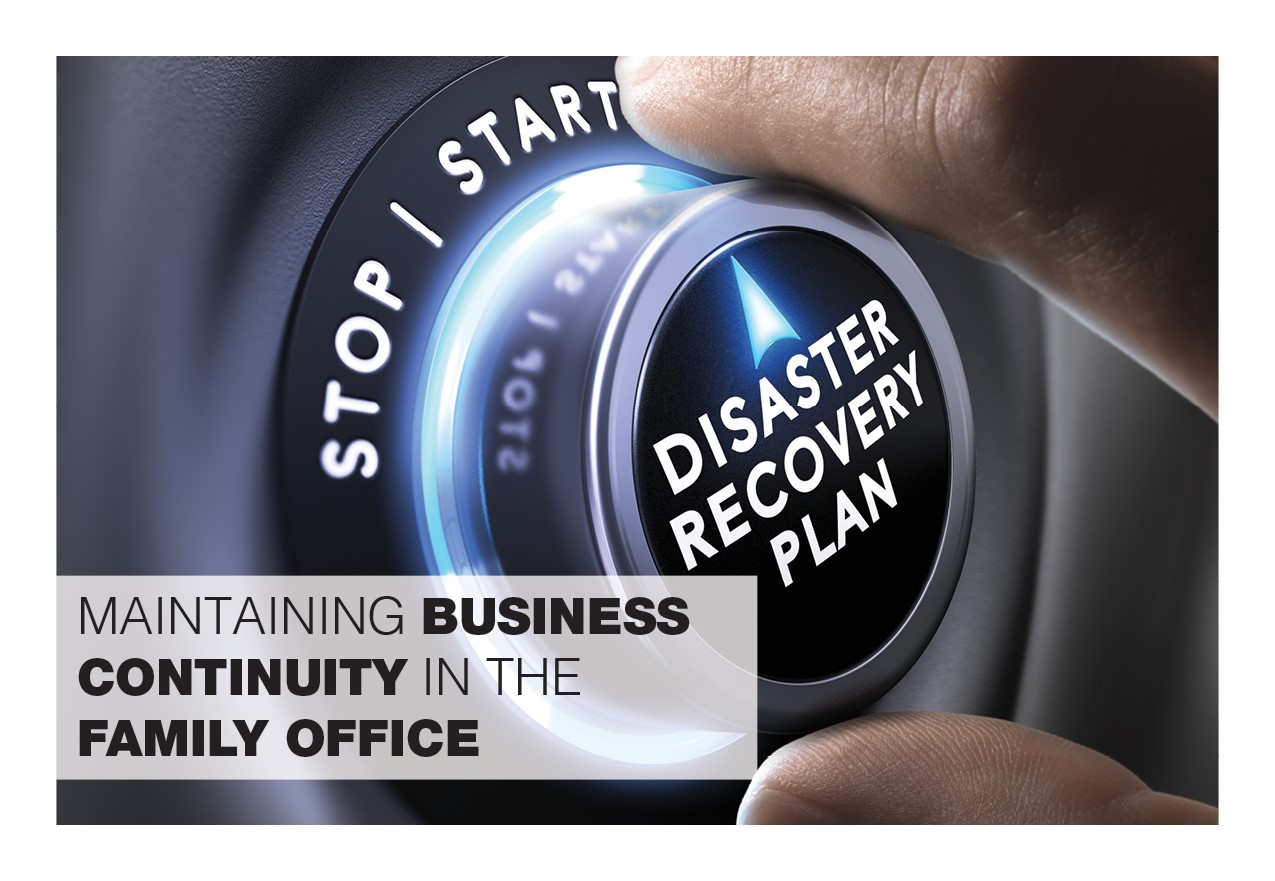Succession planning is one of the biggest issues facing the owner of a family-owned business. Who will take over after you step down? What happens if you are seriously injured or die? Is there a younger family member or an executive who can pick up the ball to keep the business moving forward?
For wealthy families, maintaining business continuity, when it comes to their financial affairs, is an important issue although it can easily be forgotten in the rush of day-to-day operations. Whether you have a family office staffed by a team of professionals or a financial advisor who manages your various investment accounts, you should be thinking about ways to mitigate the risk of the loss of your advisors. Otherwise, you may be faced with the difficult choice of moving your personal affairs to a different group or replacing an experienced advisor with someone unfamiliar with your personal goals, risk tolerances and investment preferences.
Typically, single family offices are small teams of three to five professionals. Although the CEO is the trusted confidant, they usually stay for extended periods and a change happens in coordination with the Matriarch or Patriarch. When the CEO leaves, there is the risk of the core information disappearing with them. But often much of the core day to day activities that are of vital importance to the family are conducted from one of the more junior staff. Losing them can be much more damaging to a family and their family office. That junior person deals with critical issues around insurance, paperwork, contact lists and the running of the office and household. Their departure may critically impact the remaining team members’ ability to manage your financial affairs.
In this situation, it is important to have a heart-to-heart discussion with your family office CEO about succession planning and maintaining business continuity. In many cases, an experienced outside financial professional can help guide the conversation, touching on the list of policies, procedures, systems, and key issues that need to be addressed.
A third-party professional can also review other aspects of business continuity planning, such as maintaining backup records in a secure location in the event of a natural disaster such as a hurricane, flood, tornado, or a fire that destroys the family office facility. Maintaining comprehensive records off-site, should be part of a comprehensive business continuity plan; a precaution in case of a prolonged power outage or building damage that prevents a return to operations along with plans for a backup location or working remotely.
Cybersecurity should also be considered in business continuity planning. Several recent high-profile ransomware attacks point to the importance of maintaining a secure backup for your family office’s financial documents. If a criminal encrypts your system and demands payment for releasing the data, you may not be able to simply shut down your equipment. Ensure your backup files are kept offline and separate from your day-to-day operations, check that they have not been compromised and work to restore operations, keeping the data safe.
All these steps are important in ensuring your family office operations can continue in the face of internal departures or external threats. There are many elements that need to be considered, an outside professional can analyse your current plan and make recommendations to protect the interests of you and your family, in an unbiased manner.

Leave A Comment